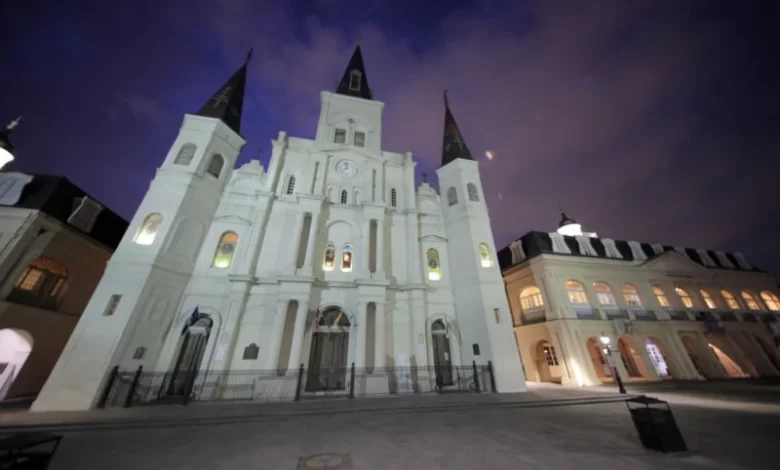Can’t make it to Rome? Here are the U.S. locations where you can get a jubilee indulgence

 The St. Louis Cathedral, the oldest Catholic cathedral in continual use in the United States, on April 9, 2020, in New Orleans. / Credit: Chris Graythen/Getty Images
The St. Louis Cathedral, the oldest Catholic cathedral in continual use in the United States, on April 9, 2020, in New Orleans. / Credit: Chris Graythen/Getty Images CNA Staff, Feb 24, 2025 / 07:00 am (CNA).
Millions of Catholics from around the world are converging on Rome this year for the Jubilee Year of Hope. During this special year, Catholics have the opportunity to gain indulgences by making pilgrimages, prayerfully visiting specific churches, or practicing works of mercy.
Can’t make it all the way to Rome but still want to participate as a pilgrim? The good news is that according to the Vatican, pilgrims anywhere in the world who undertake “a pious pilgrimage to any sacred jubilee site” and devoutly participate in holy Mass can obtain the indulgence.
In addition, the faithful can also obtain the jubilee indulgence if they devoutly visit any jubilee site individually or in a group. While there, they should engage in Eucharistic adoration and meditation for a suitable period and conclude with the Our Father, the profession of faith, and invocations to Mary, Mother of God.
In the U.S., bishops across the country have announced special designated jubilee pilgrimage sites throughout their dioceses, including cathedrals, basilicas, parish churches, local and national shrines, monasteries, and more.
Here is an interactive map that shows many of the pilgrimage sites that have been designated across the U.S. There is a search bar (opened by clicking the magnifying glass) where you can search for a specific location; or you can put in your home diocese and it will be highlighted for you, so you can see which designated sites are close by.
By clicking the colored dots in the map legend, you can filter the locations by type. The map is also zoomable.
What does it mean to get an indulgence?
An indulgence is a grace granted by the Catholic Church through the merits of Jesus Christ to remit from a person the “temporal” punishment they face for past sins that have already been forgiven.
The Church teaches that every sin, no matter how small, entails “an unhealthy attachment to creatures,” which must be purified either here on earth or after death in purgatory. That purification frees a person — who has already gone to confession and obtained forgiveness — from what is known as the “temporal punishment” of sin, which is contrasted with the “eternal” punishment of hell that is a consequence of dying in a state of grave sin, i.e., separation from God.
Since Christ gave his Church the power to “bind and loose” sins, the Church is able, through offering an indulgence, to open “the treasury of the merits of Christ and the saints to obtain from the Father of mercies the remission of the temporal punishments due for their sins.” (Contrary to popular belief, there is no monetary cost associated with indulgences.)
Indulgences can be “partial” or they can be “plenary” (meaning they remove all temporal punishment). Indulgences are offered not only to help Catholics but also to “spur them to works of devotion, penance, and charity,” the Catechism of the Catholic Church says in No. 1478.
Plenary indulgences obtained during the jubilee year can also be applied to souls in purgatory, with the possibility of obtaining two plenary indulgences for the deceased in one day, according to the Apostolic Penitentiary.
To obtain an indulgence, a Catholic must meet the “usual conditions”: be truly repentant and free from any attachment to sin, go to the sacrament of confession, receive holy Communion, and pray for the intentions of the pope.





